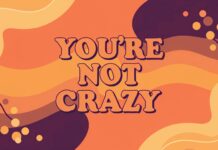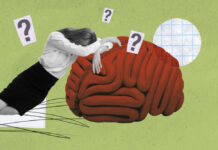 This week on MIA Radio, we interview Amanda Burrill. After a successful career as a Surface Warfare Officer and Rescue Swimmer in the United States Navy, Amanda was on track to continue her career as a professional triathlete and marathon runner, as she had already been competing internationally while still in uniform. Around the time of her discharge, she was prescribed a cocktail of psychiatric medications that caused physical injuries, leading to an early end to her rapidly accelerating career.
This week on MIA Radio, we interview Amanda Burrill. After a successful career as a Surface Warfare Officer and Rescue Swimmer in the United States Navy, Amanda was on track to continue her career as a professional triathlete and marathon runner, as she had already been competing internationally while still in uniform. Around the time of her discharge, she was prescribed a cocktail of psychiatric medications that caused physical injuries, leading to an early end to her rapidly accelerating career.
Amanda completed a Masters degree in Journalism from Columbia University, a culinary arts degree from Le Cordon Bleu in Paris, and continued her work as a travel and culinary journalist; all while surviving a cocktail of over a dozen psychiatric drugs over eleven years.
While being treated for a traumatic brain injury (TBI) by specialists at New York University in 2018, Amanda’s doctors raised concerns about the selective serotonin reuptake inhibitors (SSRIs), benzodiazepines, stimulants, sleeping medications and mood stabilizers concurrently prescribed to her by the Department of Veterans Affairs. Over the next 12 months, Amanda was successful in withdrawing from her cocktail of meds, which included the SSRI Zoloft. She now sees it as her mission to ensure that what happened to her does not happen to others.
We discuss:
- How Amanda completed a six-year enlistment as a Lieutenant in the United States Navy, where she deployed once to Iraq and with multiple deployments around the world.
- How she suffered a traumatic brain injury (TBI) after falling through a ship hatch.
- How she was prescribed psychiatric medications to treat symptoms of post-traumatic stress disorder (PTSD), and other symptoms from her TBI.
- How this cocktail of medications increased until she was prescribed nearly half a dozen psychiatric drugs at a time.
- How her career as a professional athlete ended because of foot and leg injuries, and how she has since connected the antidepressants with the physical injuries she sustained.
- That her treatment consisted of switching from one drug to another: “it was always lateral motion, it was never a decisive move in one way or another.”
- Amanda describes being prescribed powerful psychiatric drugs: “Klonopin was a drug that I was told to take three times a day for years of my life. We’re looking at eleven years on drugs of some sort, and seven of them being heavily medicated.”
- How she fought away thoughts of suicide caused by antidepressant withdrawal: “My situation, my state of mind, my inability to really plan anything and do anything, was not sustainable. And so what I started to think about were if it gets to where I can’t take it anymore, I should have a plan in place, and the plan should either be to make it look like an accident, or make sure that it’s not a situation where people feel bad for me. That is to say, I started to have ideations about not being alive anymore because I saw it as a better choice than having no control and no future.”
- How her suicidal thoughts came as she withdrew from Zoloft: “It was the first time we had tapered down on the Zoloft, I was at my apartment and I was thinking about the fact that I had to go onto a managed Medicaid plan to address my medical issues because they weren’t being addressed by the VA. I was like, am I depressed because I’m on this managed Medicaid plan? I’m in my mid-thirties, I’m not allowed to make more than X amount per month, I mean, I wasn’t allowed to make money. I was almost sort of trying to rationalize that maybe it was a blessing that my feet collapsed because I’d want to be out running and (getting) sponsored.”
- How she “still had motivations, but to just know that I didn’t want my life to be this.” And “I even remember, I threw myself down onto the floor, I had my fist clenched and I was yelling, why, why, why can’t I figure this out?”
- How she withdrew from her medications with the support of doctors, outside of the VA: “I had just started to taper the SSRI (Zoloft), and none of this was the VA’s idea. It was the hospital that was treating my brain injury that was insistent and supportive of me getting off of these drugs.”
- How even though she had the support of her doctors as she withdrew from Zoloft there was never a clear warning of the dangers: “It’s not as though we were like, we have to be careful here, we’re doing a withdrawal.”
- How she knew: “something was wrong on a grand scale. It was that combination of you know, losing your body, which I actually kind of was.”
- Amanda says “I feel as though, to others it couldn’t have been that bad because look at what you were able to accomplish; and to me it’s ‘I could have done so much better.’ I’m not just talking about what I could have achieved more vocationally; I could have done better by my friends, and my family and my relationships, and that’s a lot to swallow.”
- How Amanda compares psych drug withdrawal to an exorcism: “There is no clinical diagnosis that I’m aware of for a person that is withdrawing from a huge cocktail of drugs. It’s not necessarily that this is a mental illness, but it’s almost like it’s an exorcism of sorts, there is no diagnosis for that.”
- Amanda does not think the doctors understand the harm many of their patients experience: “There is no way of putting words on that, and to be honest, we can describe what that feels like, but I don’t know that half of the doctors or more that we see are really aware of the harm of being just completely soaked in these drugs for any amount of time can do.”
- How she thinks many people across the country are trapped in a drug-induced “purgatory” and that this can be “a numb, emotionless place to be.”
- How the more she insisted “that something isn’t right” and “the more you insist things are wrong, the more the urgency seemingly to raise your dosage, or to add something else to the mix.”
- Amanda shares that all the smiles on her TV appearances and in magazines during this time were not fake, but was an adaptation trying to make things look okay, so she could still work and still survive.
- How in spite of everything she endured, she is “thankful for pivoting towards things that interested me.”
- That Amanda now believes in the importance of advocacy: “It’s being open about all the mental health diagnosis, it’s being open and honest about all the psych meds I was put on, and that does mean admitting I didn’t know any better. It took me a really long time to figure it out, but it’s better than not figuring it out.”
- Amanda talks about her trip to Washington, D.C. with High Ground Veterans Advocacy, to advocate for other veterans and to reform mental health treatment at the VA.
- How she has set herself “on a mission to ensure this stops happening,” advocating for other veterans and seeking to reform mental health treatment at the VA.
- Amanda’s message to listeners is to: “advocate for yourself and never stop believing that it is better on the other side because it is.”















Klonopin (clonazepam) is not a powerful psychiatric drug. There’s much worse drugs …
Report comment
Klonopin is plenty powerful. Many people report becoming addicted. It’s a benzo. Sure, there may be worse things, like having a hand cut off is worse than just a finger. But it’s plenty dangerous.
Report comment
“addicted” is not applicable to *most* of us on benzobuddies…
Stop it with the addiction language. Not accurate and it harms us.
And yo, neo-liberal
You should check out BenzoBuddies and read a few entries–benzos are dangerous as f*ck.
People DIE when cold-turkeyed. People kill themselves from the akathisia…and the lack of acknowledgement. The symptoms are numerous and persistent for years for some of us.
Report comment
You are correct, of course, and I do apologize. Though benzos CAN be drugs of addiction as well, and are sold on the street for that purpose. My point is rather that trying to say Klonapin isn’t a major drug is incorrect. It creates a physiological effect that is more difficult to get off of the longer you take it. AND it is a drug of addiction as well.
Report comment
Yes, they are dangerous. I was on klonopin for 8 years (without really knowing what it was at the time, and how it effected me). I did stop cold-turkey, had several epileptic fits and anxiety (I’m assuming it was from the sudden klonopin abstinence). Coming off an atypical antipsychotic, though, is much harder, (in my opinion).
Also, with a benzo, if you tell your doctor you wish to quite, they will most likely help you without much reserve. Not the case with an ap.
Report comment
Neo
APs, ADs, benzos…they *all* can cause severe withdrawal syndromes. One can’t compare experiences and say which one is ‘worse’. (Check out ‘limbic kindling’ sometime).
Most doctors don’t have a clue how to get patients off psych drugs safely. If they ‘help you without much reserve’…it’s by cutting doses waaaaay too fast, wreaking havoc on the nervous system.
Thank the goddess for Surviving Antidepressants and BenzoBuddies. What was true for you may not be true for others…
You need some humility here…
Report comment
https://www.youtube.com/watch?v=d4daGggmYp0
Report comment
No one is court-ordered to take it. That’s where the power lies.
Report comment
It is certainly the ability to force others to accept “treatment” that is the most reprehensible power of psychiatry, especially when they know their ‘disorders” lack all validity. But propaganda and status are other powers that can still be used to enforce the psychiatric worldview, even without the courts’ backing.
Report comment
The only psychiatric drug that can be administered by force is an antipsychotic.
Report comment
That is not true.
Report comment
I was force treated with various combinations of approximately 9 different drugs a day, for 10 days straight. Those drug cocktails/attempted murders included all the psych drug classes.
One of those former doctors was eventually convicted by the FBI, for Medicare/Medicaid fraud, and in part because he medically unnecessarily harmed many. But I’m pretty certain the psychiatrists can force any drug, on any person, for any unethical reason. Or at least I know they do. And I’ve got the medical proof.
Report comment
In connection with the athlete’s career what comes to my mind is *pre-existing disorders of shift-like schizophrenia..
Report comment
Regarding the Amanda Burrell story:
Being a high-achiever may have been what funneled the depression in the first place when confronted with the inability that brain injury comprises.
Being depressed (perhaps, humbled) may have been the ‘medicine’ that was needed.
Why are we not studying the restorative process of depression for it must hold some purpose in our lives?
The use of multiple drugs in treatment for most anything these days is common practice as an attempt to save lives, but I have to wonder who or what is to be saved?!
You ‘GO’ Amanda! You’ve done well! It also looks like you had some luck on your side—people who cared (of the medical type)!
Report comment
“8 million people die each year due to mental illness.”
https://www.nimh.nih.gov/about/directors/thomas-insel/blog/2015/mortality-and-mental-disorders.shtml
The problem with this concept, as all of us here know, is that the “mental illnesses” are not “valid” diseases. And that reference to how many die a year from the so called “mental illnesses,” is according to the same man who said the mental illnesses were “invalid,” two years earlier???
https://www.nimh.nih.gov/about/directors/thomas-insel/blog/2013/transforming-diagnosis.shtml
Oh, but the whistler blowers are censored for pointing out that 500,000 elderly die from the psych drugs each year – half a million vs. the actual 8 million, of all ages, who actually die from the psych drugs a year. We really are dealing with an ongoing psychiatric holocaust.
https://www.naturalnews.com/049860_psych_drugs_medical_holocaust_Big_Pharma.html
“fighting one war, led to fighting another of a different sort: Polypharmacy and overmedication.”
https://www.madinamerica.com/2020/01/around-web-veteran-saves-lives-story-polypharmacy-overmedication/
I agree, polypharmacy and overmedication most definitely is chemical warfare against the American public. It’s a war being waged, by those who promised to “first and foremost do no harm,” against the rest of the American citizens. And, shamefully, against our own veterans.
WTF are our doctors thinking? Stop worshipping the worthless paper money, made out of nothing, by the never ending war mongering and profiteering, bailout needing, fiscally irresponsible, globalist banksters, idiot American doctors. And stop trusting what the pharmaceutical industry is telling you!
“If the American people ever allow private banks to control the issue of their currency, first by inflation, then by deflation, the banks [and corporations that surround them] will deprive the people of all property until their children wake-up homeless on the continent their fathers conquered…. The issuing power should be taken from the banks and restored to the people, to whom it properly belongs.” – Thomas Jefferson in the debate over the Re-charter of the Bank Bill (1809)
Those ‘corporations that surround them’ include the pharmaceutical industry, your hospitals, and the religions that own those hospitals, not to mention their “mental health” minions.
Thanks for the interview, and so glad to have such great and amazing veterans, working to help educate the masses about the truth.
Report comment
It is a Holocaust.
Most of the ‘schizophrenics’ I knew (years ago) in Ireland had very little wrong with them, as far as most people would be able to see, other than the doctors diagnosis.
Their problem was that when they tried to stop taking the ‘drugs’ they got into trouble. But there was no acknowledgement of ‘drug withdrawal syndrome’, so when they developed problems they were seen to be relapsing.
Most of these people are now dead – well before their time.
Report comment
Yes, it is a holocaust. Where are the monuments and holocaust museums commemorating the Americans, and other Western civilization people, who are survivors, and victims, of our ongoing, modern day, psychiatric “holocaust?” Eight million innocent people killed a year with the psych drugs … make it end!
Oh, and why was I misdiagnosed? Because I knew right after 9/11/2001, that the wrong banksters were in charge of America. But now others are finally also seeing the truth. Pray to God, good wins over evil in the end.
Report comment
If you look at: Recent Media Activity you can see who the MSM sock puppets of UK Psych Inc are:
https://www.psych.ox.ac.uk/research/forensic-psychiatry
Report comment
Never liked the term I’ve heard bandied about so much recently (i.e. self-advocacy). Self-advocacy is common sense, but beyond developing that, I’ve not been advocating for myself so much. I don’t take psychiatric drugs. I know they cause harm, and not to myself alone. I see self-advocacy, in this sense, as a misleading and deceptive term. You can take psychiatric drugs if you want to, but presume I’m one to encourage their use, and you presume wrong. Beyond so-called self-advocacy there is solidarity with my struggling brothers and sisters who have experienced and endured oppression from the psychiatric system. That solidarity is not such a selfish matter as one might suppose.
Report comment